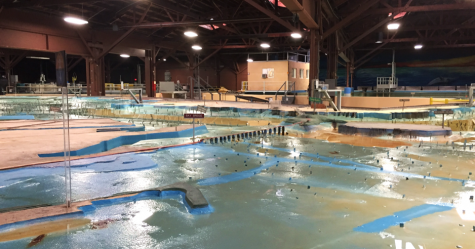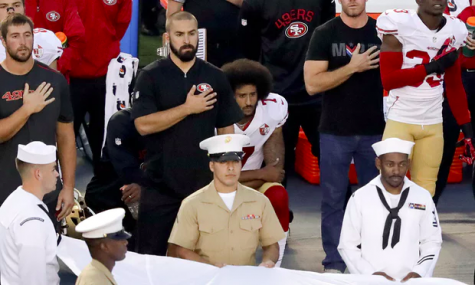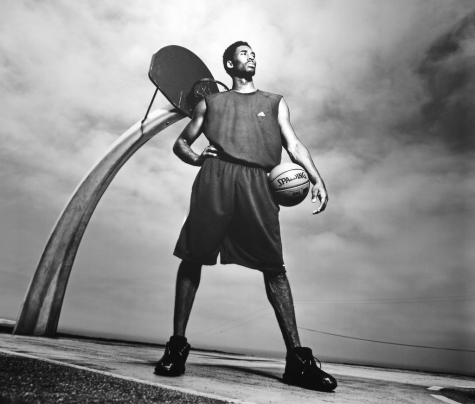George’s Story
It was a warm, pleasant Monday and George Barnett could feel the salty ocean spray hitting his face. He and 15 other Marines were packed into the claustrophobic deck of a small landing craft, with hardly enough room to breathe. Over the front wall of the vessel, George could make out the peak of a dry lifeless mountain in the distance as it slowly grew in size. The year was 1945, and George, along with many thousand other American soldiers, was approaching the beach of a small barren island named Iwo Jima.
As the island grew closer, George could feel his heart pounding in his ears and a lump in his throat prevented him from swallowing the salty residue in his mouth. George’s mind began to drift to the previous times he had landed on Japanese islands, and the horrors he had experienced. Just as his eyes began to close the hoarse voice of the driver thrust him back into reality, “30 seconds!”. George glanced at the men surrounding him and at 24, he appeared to be the oldest. His eyes met those of a young red haired boy, who seemed he could be no older than 17. His head was shaking in his oversized helmet and he held his gun as if he had never felt the weight a weapon before. His hollow blue eyes looked solemnly down to his chest, and his small hands brought a golden cross to his lips.
Suddenly the craft came to a halt, and the front wall dropped into the ocean with a splash, subjecting George and his uniformed comrades to enemy fire. The men closest to the door rushed out of the craft and splashed into the serene turquoise water, and when it was George’s turn he too plunged into the ocean. As his feet hit the soft seafloor, George kicked up and surfaced 10 yards from the beach. To his surprise, all that could be heard was the landing of the 3rd and 5th Marine divisions, and he paddled towards the beach safely. Just as he had climbed onto the shore, he heard the crack of machine gunfire and immediately sprinted up the beach and dove into the brown volcanic sand. As he lay in cover, George could hear the distant gunshots of the Japanese and the nearby screams of American men. George closed his eyes, and took in a deep, reminiscent breath.
George Barnett was born in New York to a middle class family in 1920 and relocated to Stamford, Connecticut at a young age. He enjoyed a comfortable life, and when America entered World War II, he like many other young men, was swept up by the allure of enlistment. He joined the Marines in 1942, and after completing basic training, was shipped off to the distant Pacific Theatre. He first saw action on the blood soaked shores of Guadalcanal, a member of the Solomon islands lying east of Papua New Guinea. This campaign was the first major allied offensive against Japan in response for the attacks on Pearl Harbor, and heavy casualties were sustained by both sides. After surviving Guadalcanal, George went on to participate in other campaigns on Bougainville and Guam, and finally Iwo Jima.
George’s eyes were pried open by the blast of a mortar, and the sun pierced them through their sand caked lids. George lifted his head and was greeted by a dull ringing in his ears, however the screams and cries were blisteringly audible. Through the commotion George’s damaged eyes spotted a group of camouflage clad soldiers 50 yards ahead, and before his brain could think his boots were thrashing through the sand towards them. George, “Ran faster than I ever had before,” and just as he reached the small assemblage, a tearing pain shot through his temple. George fell into the sand, and was instantly overwhelmed with pain. The men around him and looming mountain behind them began to fade, and George was once again consumed by darkness.
When George awoke, he was lying in a bed and could hear waves breaking on a ship. A large bandage sat unwelcomed on his forehead, and he looked over at the men laying next to him. They all lay silently in pristine white clothed folding beds, and George suddenly felt a sense of relief, and a slight tingle of guilt. From this ship, George was returned to his hometown of Stamford and shortly after that the War that had wounded him was over. George then preceded to join the Stamford Fire Department, and eventually retired and moved to Jupiter, Florida.
This is where I met and interviewed him in 2006, and I will never forget the stories that George told me. This article is dedicated to the memory or George Barnett: 1920 – 2008.
All of the information in this article was gathered in an interview with George D. Barnett and was verified in:
– Esposito, Vincent J.. The West Point Atlas of War the Pacific. New York: Tess Press, 1995. Print.









